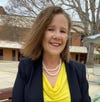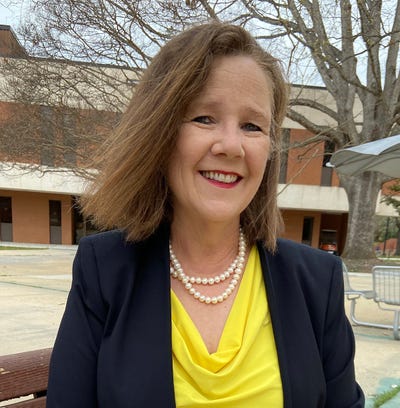
South Carolina, Georgia and North Carolina are combining forces to help fruit growers produce more profitable crops.
Clemson Extension announced the hiring of two new fruit crop specialists, Brett Blaauw and Tom Kon, during the Oconee County Fruit Grower’s Meeting in Walhalla earlier this year.
Both men have joint appointments with Clemson. Blaauw is a peach entomologist from the University of Georgia with research and Extension responsibilities in both Georgia and South Carolina. Kon is an apple horticulturist with research and Extension responsibilities in Georgia, North Carolina and South Carolina. Both men said they are excited about their new positions and look forward to working with growers in their home states, as well as in South Carolina.
South Carolina, Georgia and North Carolina can be called a “Trifecta of Fruit Crops,” and because these three states are in the same region they can share resources to help expand and improve their peach and apple crops. Having faculty with multistate responsibilities is one way they share resources, Blaauw said.
“Peaches in the southern United States is not just another crop,” Blaauw said. “There are more than 25,000 acres of peaches grown in both Georgia and South Carolina. Peaches have a long history in the South. Because of its history, the peach industry is a part of the Southern culture.”
The peach industry is a major agricultural industry in South Carolina. Matthew Cornwell of the South Carolina Department of Agriculture said the industry grosses about $50 million annually and employs more than 1,000 people.
“This does not reflect the money spent within the state and local communities with allied industry, such as trucking, equipment, chemicals and so on,” Cornwell said. “We estimate that value at an additional $30 million. As some of our larger growers are diversifying their farms to include further processing operations, we expect to see a significant increase in that value in the coming years.”
Blaauw has a dual doctoral degree in entomology and in the ecology, evolutionary biology and behavior program from Michigan State University. He said his plans are to “…work with growers to help solve insect-related issues through research and discussions… and to collaborate with growers and researchers to evaluate and develop new management and monitoring strategies for insect pests while implementing methods to help protect and support our beneficial insects.”
Blaauw’s responsibilities also include working with other fruit crops, such as apples and grapes.
Kon’s position is located at North Carolina State University’s Mountain Horticultural Research and Extension Center near Asheville. He has a doctorate in horticulture with an emphasis in applied pomology from Pennsylvania State University. His area of expertise includes studying chemical blossom-thinning strategies in apple orchards. He plans to use his experience to serve the southeastern apple industry.
“I am in the process of developing an integrated research and Extension program to address production-related issues of the southeastern apple industry,” Kon said. “I am interested in the following research areas: crop load and canopy management, pruning and tree training practices, rootstock evaluations, mechanization of orchard practices, as well as evaluation of plant growth regulators to improve fruit quality. My program will be responsive to the needs of the industry and will aim to improve orchard productivity and profitability in the Southeast.”
Thomas Dobbins, Clemson Cooperative Extension Service director, said this type of collaboration between states is very beneficial.
“I am excited about working across state lines with these Extension specialists and the Cooperative Extension directors in Georgia and North Carolina to bring a higher level of expertise to our state,” Dobbins said. “We could not afford this level of expertise on our own. Working collaboratively across state lines opens up other doors in the area of Extension and research, and our farmers are the ones who benefit from these collaborations.”
Also during meeting, Sara Villani, an apple and ornamental pathologist from North Carolina State University taught growers how to use MyIPM, a smartphone app created to help growers combat diseases. Created by a Clemson fruit specialist and a computer software engineer, MyIPM (Integrated Pest Management) is the first smartphone app of its kind. The Android version is available on Google Play and the iOS version is available in the App Store.
Kerrie Roach, area commercial horticultural agent for Oconee County, talked about the importance of soil testing.
“You want to be sure to test your soils every year,” Roach said. “Soil tests will help determine what nutrients your soils need to ensure what you plant is productive.
About the Author(s)
You May Also Like






